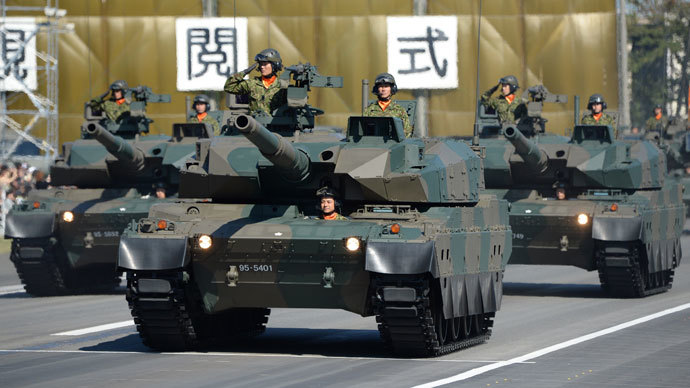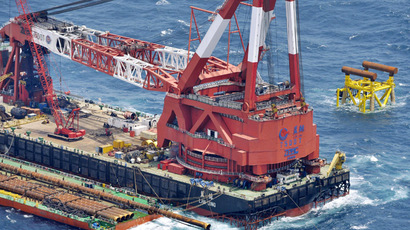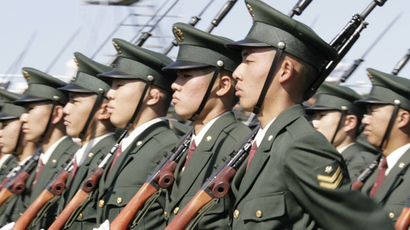Japan to rethink pacifist constitution by 2020 amid rising tensions

Japan will revise its constitution, which limits its military activities to self-defense by 2020, Prime Minister Shinzo Abe said, as tensions in the region build, caused by long-standing territorial disputes.
The comments were published in conservative daily Sankei Shimbun on Wednesday, and said the constitution will have been revised after Tokyo hosts the Olympic Games in 2020. Article 9 of the Japanese constitution forbids the use of war to settle international disputes and calls for peace to be found using justice and order. The article was added to the Japanese constitution following WWII
“Aspiring sincerely to an international peace based on justice and order, the Japanese people forever renounce war as a sovereign right of the nation and the threat or use of force as means of settling international disputes,” states the article. Prime Minister Abe said that the constitution needs to be rethought to deal with the changing times, given that it was laid down over six decades ago.
In addition, Abe spoke of the importance of defending Japanese territory from the growing assertiveness of the Chinese in the region. China raised tensions in the area in November when it created an air defense zone that encroached on the territories of neighboring countries.
Japanese lawmakers reacted angrily and accused the Chinese government of being “reckless and risky” and attempting to alter the “status quo” in the region. China, for its part, has called on Japan to desist from provocative actions and repair diplomatic ties between the Asian nations.
The two countries have been trading diplomatic blows over the last year over a group of islets in the East China Sea. Although Japan administers the Senkaku Islands, China maintains it has a historic claim on what it calls the Diaoyu Islands.
Tensions bubbled to the service when Abe visited a shrine last week that is widely regarded as a symbol of Japan’s wartime aggression.
"The Chinese people and people of other Asian nations will not allow Japan to drive history in reverse. We solemnly urge Japan to reflect upon history and change course," Chinese Foreign Ministry spokeswoman Hua Chunying said in a statement posted on the ministry's website.
The Yasukuni shrine honors Japanese leaders who were convicted
war criminals for their actions in WWII.
When conservative Prime Minister Abe was elected in December 2012
he pledged to mend ties with China, but a year into his
presidency there has been no lessening of diplomatic tensions
between the two countries.













